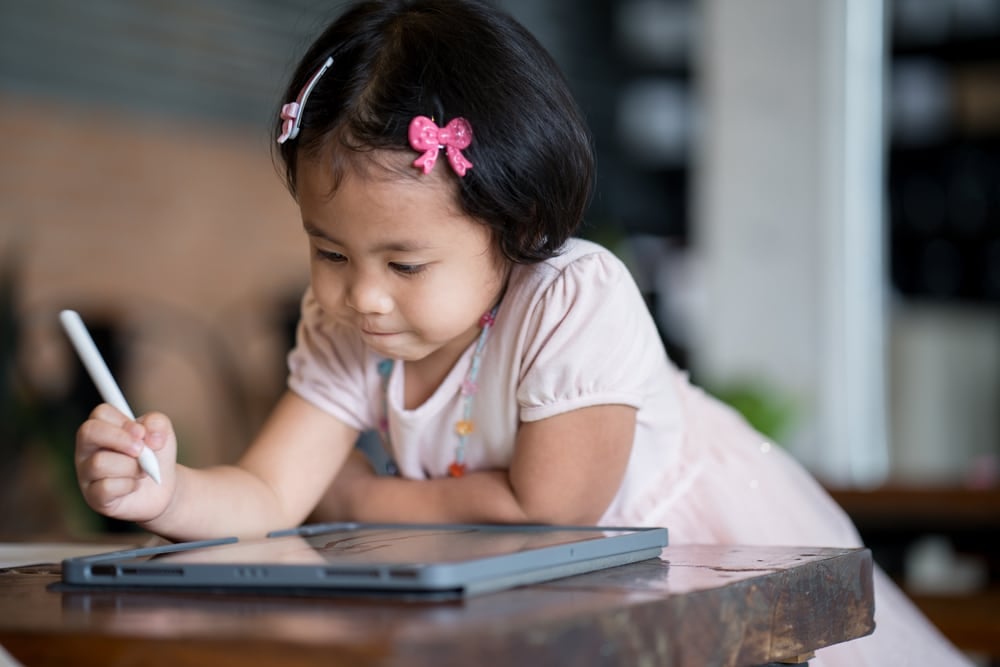
West Street, BN7 2NZ Lewes,
[email protected] +44 (0)1273093940 https://www.teentips.co.uk
In this digital age, parents find themselves navigating uncharted waters when it comes to managing their children’s screen time. The debate surrounding the impacts of screen exposure on young minds has sparked concerns and fears among caregivers worldwide. However, in our pursuit of protecting our children, it’s crucial to strike a balance between recognizing the positive aspects of screen time activities and establishing necessary boundaries to protect children’s developing brains.
While it’s easy to succumb to the narrative that screens are inherently harmful, we must acknowledge that not all screen time is created equally. There are valuable opportunities for learning, creativity, and social interaction that digital devices can offer to our children.

Engaging in age-appropriate educational content, interactive games, and creative applications can stimulate a child’s cognitive development. Many screen-based activities foster problem-solving skills, enhance hand-eye coordination, and even promote language acquisition. Educational programs and apps designed to align with developmental milestones can supplement traditional learning methods, making education more accessible and engaging for young learners.
Screens also serve as a gateway to social activity in our increasingly connected world. Video calls with relatives, interactive group activities, and moderated online communities can facilitate social interactions that are particularly beneficial for children who might struggle with face-to-face communication. Such interactions can foster empathy, understanding, and a sense of belonging.
However, while acknowledging the potential benefits, it’s imperative to implement clear guidelines and limitations on screen time. Just as a balanced diet is essential for physical health, a balanced media diet is crucial for mental and emotional well-being.
Establishing healthy screen time habits starts with setting clear boundaries. As parents, it’s essential to establish specific rules regarding when, where, and how long your child can use screens. Consistency is key; enforcing these rules consistently helps children understand and adhere to the limitations set.
Not all screen activities are created equally, and not all content is suitable for every age group. It’s essential to curate and monitor the media your child consumes. Choose age-appropriate, high-quality content that aligns with your family’s values and promotes positive messages.
Encouraging a balanced approach to screen time involves promoting diverse activities beyond screens. Encourage outdoor play, physical activities, hobbies, reading, and creative endeavours that don’t involve screens. By offering a variety of stimulating activities, children can develop a broader range of skills and interests while reducing their overall screen exposure.
Regularly engaging in conversations about digital citizenship and online safety is equally vital. Educate your child about the importance of responsible online behaviour, the potential risks of the internet, and the significance of privacy and consent. Open communication fosters trust and empowers children to make informed decisions when navigating the digital realm.
Finally, leading by example is paramount. Children learn by observing the behaviour of adults around them. Modelling healthy screen habits and being mindful of your own screen use can reinforce the importance of balance and moderation.
Screens are not inherently evil, but rather a tool that can offer both opportunities and challenges in a child’s development. Recognising the benefits of certain screen time activities while establishing clear boundaries and limits is key to fostering a healthy relationship between children and technology. By embracing the positive aspects and implementing mindful restrictions, parents can empower their children to harness the potential of screens while cultivating a well-rounded lifestyle that encompasses various enriching experiences both on and off-screen.
For more ideas and examples of digital play you can get your children involved in, click here.
For more tips on managing screen time, you can find Dr Amanda Gummer’s tips on CBeebies here.
Keep up to date on our latest insights, guidance and tips